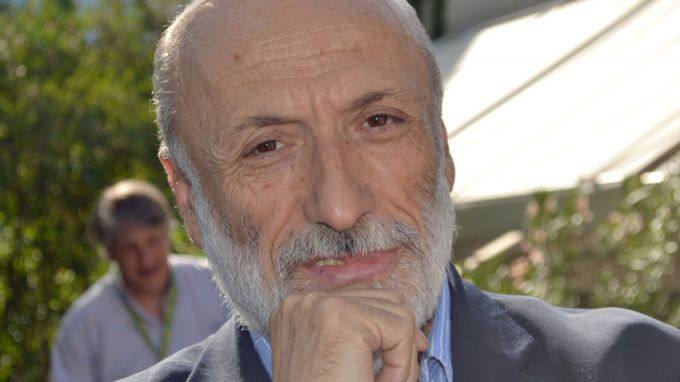 3
3
The members of the Slow Food Network have been making a velvet revolution, the founder of the idea Carlo Petrini told Radio Bulgaria. Several days ago he presented to the Bulgarian readers his book entitled Slow Food Nation: Why Our Food Should Be Good, Clean and Fair. Food is good because it is delicious. It is clean because it is produced in an environmentally-friendly manner. Food is fair because consumers appreciate the efforts of the people who make, process and sell it. In Carlo Petrini's view, when people back the idea of the Slow Food movement, they oppose consumerism, the profit made by all means and the persuasion that people are allowed to do whatever they like, even if it is against nature. We should use a revolutionary approach to fight against such perceptions. We need a velvet revolution, Mr. Petrini further says.
Thanks to the efforts of thousands of people, the local cuisines have turned into cultural heritage and a great asset for all nations over the centuries, just like the local architectural monuments, language and music. However, the large diversity of food worldwide is exposed to the risk of extinction, the author further comments. Mr. Petrini pointed out that the main task of the Slow Food movement is to protect that diversity, because it is what makes food really valuable.
Nearly 50 Bulgarian products are included in the list of foods endangered of extinction. Carlo Petrini contends that people should buy food produced by small farmers and manufacturers, in order to help them stay in that business. Each person becomes part of the co-manufacturers' chain when buying given produce. The Slow Food Movement has been functioning in Bulgaria for nearly 10 years and has been gaining bigger popularity amidst the local society. I am curious to see how historical heritage of the traditional Bulgarian cuisine coexists with contemporary culture. I would also like to see the effect over the country's entire culture, Carlo Petrini says and adds:
“Being part of the European Union, we are all aware of the fact that agriculture experiences great difficulties. In recent years the large distribution chains cut significantly the large variety of local products and traditional food. The main purpose of Slow Food Movement in all twenty eight member states is to boost local economies, the volume of agricultural produce, promote fishery and stock-breeding. Many young people started to show interest in agriculture and organic farming. Slow Food is making efforts to guarantee good future for these farmers. The change will be made through education and good upbringing of our children. In Italy, the schools in my native town of Bra, North Piedmont, planted over 500 fruit and vegetable gardens in the recent years. Thus, the young people can touch and get a better knowledge of nature. They can learn how food is produced. Slow Food's networks and philosophy has spread across over 170 countries. In the USA only our members amount to nearly 100,000. Industrial life alienated us from our land, but now we are witnessing drastic changes in our climate which may alter significantly the future of agriculture. Each increase of the world's average temperature with 1 degree Celsius pushes agriculture 100 kilometers to the north and increases the altitude of the farmland with nearly 200 meters. In the Northern Hemisphere this has already become a reality. ”
In 2005 the Slow Food movement organized the first meeting of food communities entitled Terra Madre. Thousands of farmers and small producers who need help to protect their produce from turning into a conventional commodity gather at the event. Bulgarian farmers and manufacturers also attended the forum. Thanks to that initiative, people started to talk about the green mold cheese from the village of Cherni Vit, as well as about the local Nafpavok meat delicacy (also known as Bulgarian prosciutto) which is made by several Bulgarian families only under an ancient recipe. Desislava Dimitrova has more about the Slow Food Movement in Bulgaria.
“The manufacture of mold Bulgarian cheese from Cherni Vit was resumed thanks to the systematic help provided by the Slow Food Movement. Slow Food and Prompt Actions must be the motto of the Bulgarian producers, because the changes in that country are dynamic and every day small producers are struggling to survive. We rely on the small communities, the media and the scientists to restore and preserve Bulgaria's contribution to the world taste variety.”
English version: Kostadin Atanasov
The group cycling tour along the tourist route of the Black Sea Route Epic Tour 2025 started today . According to the extreme sports website 360mag.bg, a group of more than 30 cyclists will spend ten days riding along coastal paths through forests,..
Cambridge Day 2025 - one of the leading events for English language teachers in Southeast Europe - takes place today at the Balkan Hotel in Sofia. For the 19th consecutive year, the conference, organised by Klett Bulgaria Publishing, gathers experts and..
A new book "Bulgarian communities in Albania and Kosovo. Socio-political processes and demographic consequences (1913-2024)" was presented in Sofia. The work of Assoc. Prof. Spas Tashev, demographer at the Bulgarian Academy of..
International Labor Day on May 1 in the mass consciousness of Bulgarians is often associated with the period of socialism and the grandiose demonstrations..

+359 2 9336 661
